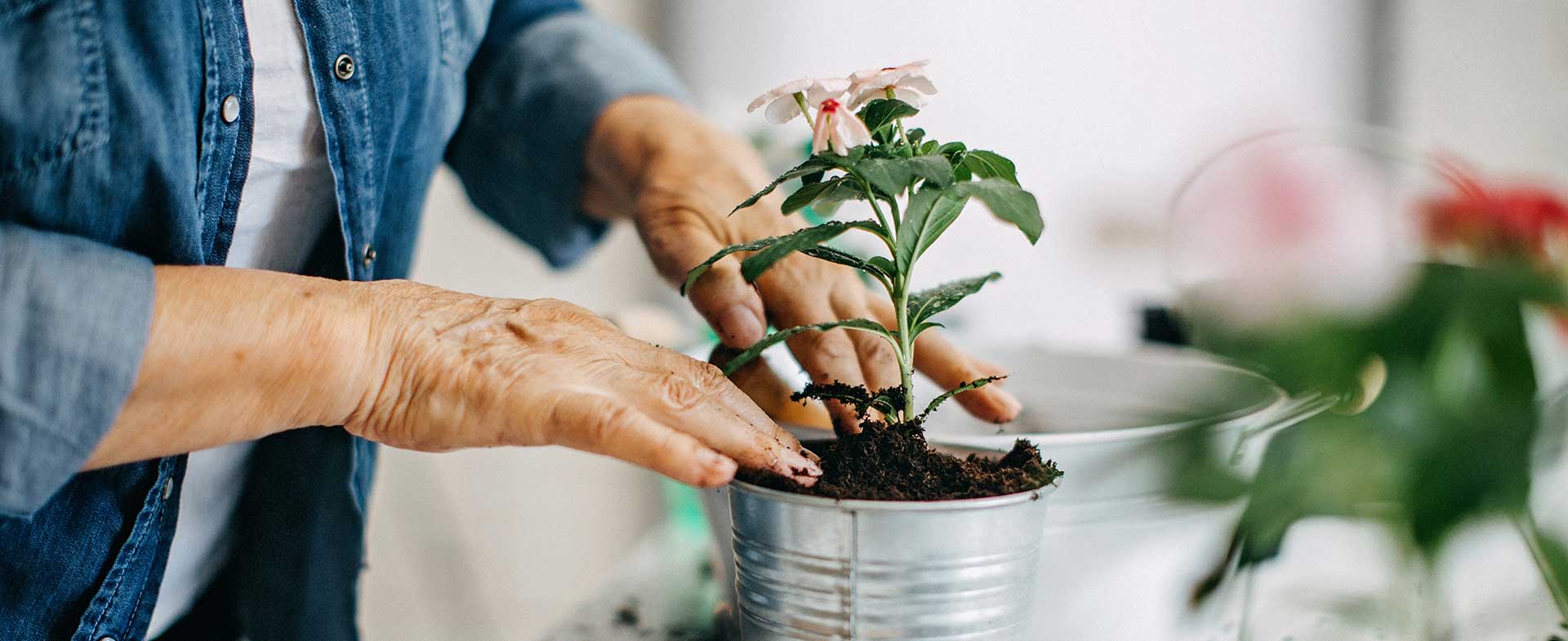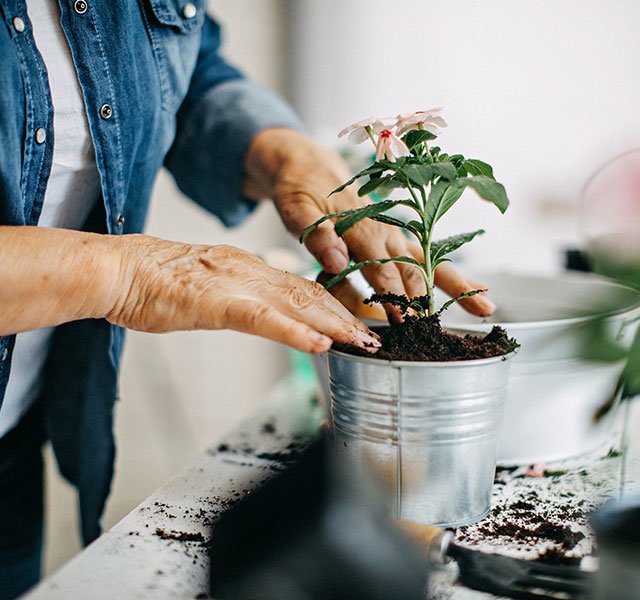Growing and maintaining houseplants comes with a host of benefits. Not only are you infusing the air with more oxygen, but you're also nourishing something that's pretty to look at.
"Growing plants fits right in with a healthy lifestyle," says Trevor Johnson, resident farmer at Henry Ford's West Bloomfield Hospital. "It supports health recommendations to get outside, be active, and eat fresh fruits and vegetables."
If you’re stuck at home during the COVID-19 pandemic, there's no better time to cultivate a green thumb.
Gardening Primer
It doesn't take a lot of effort to maintain live plants. Whether you choose to grow tulips and sunflowers or tomatoes and basil, maintaining something green can help you stay sane during the COVID-19 quarantine and beyond. Here are a handful of perks associated with growing and maintaining houseplants:
- They provide a sense of purpose: Everyone wants to feel needed, even if you're only feeding your plants. Whether you're watering a houseplant once a week or trimming overgrown herbs , taking care of plants provides a sense of purpose, Johnson says. There's something healing about looking at a plant and knowing that your love and nurturing is keeping them healthy and strong.
- They brighten your mood: Salads, greens, herbs and vegetables are good for us on the physical level. But even plants that don't produce food can act as an instant mood-lifter. The natural beauty of flowering plants can create a sense of peace.
- Plants act as food and medicine: Homegrown vegetables and herbs provide many of the vitamins, minerals and nutrients we need to stay healthy. Got fresh herbs? Make an antioxidant-rich tea to soothe a sore throat or flavor an immunity-boosting chicken soup. Tight on space? Try growing herbs or flowers in a small bag or box garden. Both are ideal options for a deck, patio or even a coffee table.
- It supports health and well-being: Planting and maintaining a garden — no matter how small — reinforces positive health behaviors. "You're getting some physical activity, eating fresh fruits, herbs and vegetables, and you're limiting screen time," Johnson says. The end result: Better health and lower healthcare costs.
Your Plant Growing Guide
There's a huge sense of accomplishment that comes with growing a plant from a seedling. But be warned: less is more when it comes to gardening.
"Most plants die from too much love, not neglect," says Johnson. "The general regimen for most houseplants is watering once a week to once a month and fertilizing maybe two or three times a year."
While growing houseplants or even a small garden doesn't require a lot of care, there are some basic guidelines:
- Start with things that are easy to grow, such as houseplants, herbs, perennials and tomatoes.
- Water infrequently, but deeply.
- Place indoor plants about one foot from a window. Most plants thrive with four hours of indirect sunlight or two hours of direct light.
- If you're going to use pesticides, mix it up. Garden pests tend to become resistant to the same products.
Trevor Johnson is the resident farmer at Henry Ford West Bloomfield Hospital’s Greenhouse, which is Michigan’s first hospital-based greenhouse. It supplies produce for patient meals, hospital café use and the weekly seasonal market held at the hospital, as well as providing innovative educational programs for children and the community.



